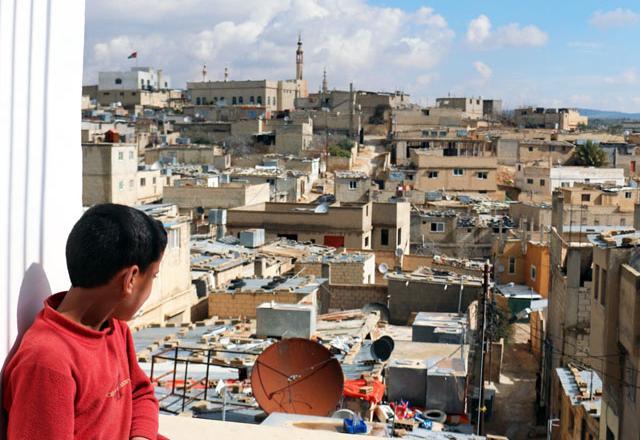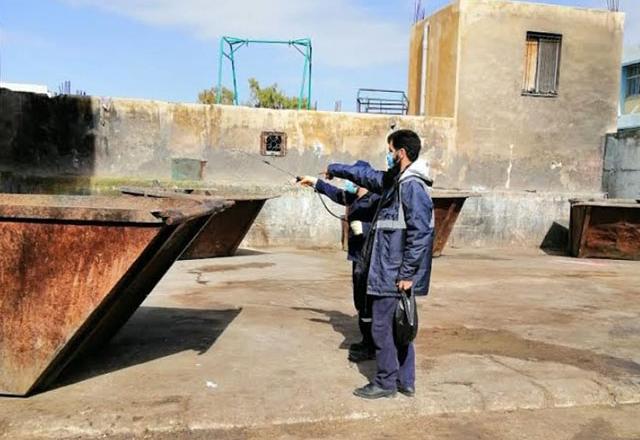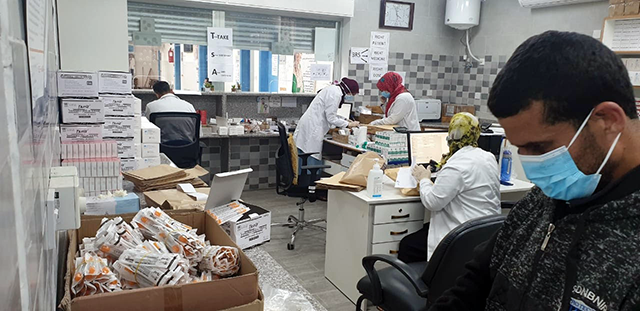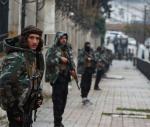You are here
UNRWA appeals for funds to fend off coronavirus threat to vulnerable refugee communities
By Bahaa Al Deen Al Nawas - Apr 09,2020 - Last updated at Apr 09,2020

A view of Jerash camp, which hosts more than 29,000 registered Palestine refugees. No cases of COVID-19 have been reported at the United Nations Relief and Works Agency for Palestine Refugees’ camps in the Kingdom, according to the UN agency (Photo courtesy of UNRWA)
AMMAN — No cases of COVID-19 have been reported at the United Nations Relief and Works Agency for Palestine Refugees’ (UNRWA) camps in the Kingdom, Director of UNRWA Affairs in Jordan Mohammed Adar said on Thursday.
In a phone interview, Adar said UNRWA is working closely with the Ministry of Health and the authorities on raising awareness regarding preventive measures, which he described as “a big challenge,” as camps can be congested and crowded in certain areas.
“While the government has already closed places where people can come together, such as mosques, we still need to alert the population to avoid social gatherings and follow the instructions of the government, as well as adhering to the curfew and staying at home,” Adar said.
“Unfortunately, from what we see, the message is still not getting through to some people who do not yet understand how serious this illness could be and how it can affect them and their families, especially the elderly, so we want to reinforce this message,” he noted.
The UNRWA is planning next week to form committees comprising community volunteers of about 20 members for each camp, trained on matters related to COVID-19 and ready to work in small teams at their assigned locations to spread the necessary messages and instructions.
“The teams will tell people that it is better to stay home and only go out when it is absolutely necessary for matters of provisions and essentials,” Adar said.
He noted that about 200 volunteers will be working in around 10 camps every day, to provide people with the guidelines of the Health Ministry and World Health Organisation “in a language people would understand.”
“I hope the campaign next week will bring about a change in behaviour and that people will become better aware of the danger of this crisis and virus,” he added.
The UNRWA measures also included moving 300 to 400 tonnes of garbage out of the streets by 300 sanitation employees working at the camps, and also disinfecting garbage collection points, according to the director.
He added that UNRWA and its partners, especially concerned municipalities, have also been conducting sanitation campaigns.
Last week, UNRWA Jordan’s medical staff started providing door-to-door distribution of essential medications to people with non-communicable diseases, Adar said, noting that “we have in our database 80,000 refugees who require medication for chronic illnesses, such as diabetes, hypertension, heart disease and so on.”
The government granted the staff permission to distribute the medicines, which, over the past week, reached 24,000 Palestinian refugees in the different camps, Adar said, noting that once the distribution at camps is finished, the staff will continue distribution to refugees who live outside them.
“Overall, we run 25 clinics in this country but they are closed, so we are in contact with the Ministry of Health to increase the number of medical staff with permits so we can reach many more refugees and support them in this difficult time,” Adar said.
“In terms of testing, UNRWA has no facilities, we work with the government, if we have suspected cases, we refer them to the government hospitals where they can be tested,” Adar pointed out, adding, “I am aware of [suspected] two cases; both of them were UNRWA staff but also Palestinian refugees living in the camps, who were tested and their results came negative.”
While no cases of the virus have been reported at any of the camps in Jordan, Adar said he hopes that the government’s announced random testing measure in camps and other areas will solidify further that the camps have no cases whatsoever.
Regarding education, Adar said the UNRWA uploaded all of its students’ data to the government’s online education platform, allowing the education process to resume via access to internet and TV, where the government broadcasts lessons on Jordan TV’s sports channel.
UNRWA teachers are also working from their homes, following up with students on their studying and homework through social media applications, providing them with guidance and support, according to Adar.
While UNRWA has appealed for funds at the beginning of the crisis for $14 million for all operations in the five fields, Adar said, “now this appeal has been revised because the initial assessment was for protective gear for staff and workers, but now the economic impact is huge and there needs to be support to Palestinian families, especially the very poor and those with no access to government assistance.”
“I think the amount will be four to five times greater than what has been initially asked for, and it will be announced soon,” he added.
The UNRWA has already been facing financial problems in regards to supporting their regular programmes, and the coronavirus crisis added up to the challenges, Adar said, hoping the donors will help protect Palestinian refugees and communities in the region and help UNRWA to continue its programmes without interruption to its services.
“The government has been very active in managing the COVID-19 crisis and exerted extraordinary measures that are being put in place; such as movement restrictions and working from home,” he said, adding that “Jordan fortunately has one of the lowest number of COVID-19 cases, and this is a direct result of those measures.”
“People in camps and rural areas are generally more relaxed about COVID-19 and do not take the virus too seriously, so anything that can be done to amplify the message with compelling reasons for people to practice social distancing, stay home and heed all preventive measures is going to be helpful,” Adar said.
He said that while the curfew saves life, the economic impact of the future “will be devastating”, especially to families with daily wage workers and those who run their own private businesses.
“Thus, we hope that the international community will stand with Jordan and all countries hosting a large number of refugees to ensure that official resources and funding are available to help the needy,” he concluded.
Related Articles
AMMAN — The United Nations Relief and Works Agency for Palestine Refugees in the Near East (UNRWA) in Jordan has implemented a set of measur
AMMAN — UNRWA Jordan’s medical staff, consisting of doctors, pharmacists and nurses, have begun delivering medicines for refugee populations
AMMAN — Education Minister Walid Maani said on Thursday that the ministry will bear the costs of textbooks for the schools run by UNRWA in J

















